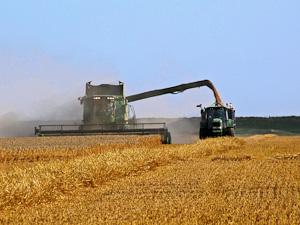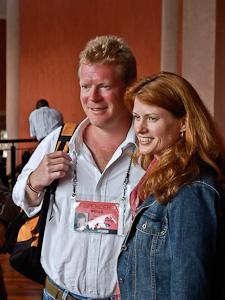

Humans are the only species throughout the history of the world to actively alter the course of its evolution and the fate of the entire planet. Wells demonstrates that the best history books from which to learn about our ancient transition from nomadic hunter-gatherers to sedentary farmers are our own bodies and genetic makeup. Using archeological and DNA evidence, he traces the history of humanity's transformational journey, detailing the origins of agriculture and plant and animal domestication; the subsequent population growth; and the rise of government, religion and stratified society.
Wells discusses how humans are now plagued by diseases and maladies of our own devising; ironic, since we also represent the greatest threat to other species on the planet. Attributes honed by evolution – such as the desire to consume as much food as we can when we can get it and effectively store that energy in order to prevent possible starvation – are maladapted to the modern, high-calorie and low physical activity lifestyle of today and lead to now-common ailments such as obesity and diabetes.
One term that Wells continually stresses is transgenerational power. He describes this original expression as the idea that our actions today may have unintended and unpredictable consequences for future generations. Our hominid ancestors had no idea that by domesticating plants and animals, they would lead us to the world of industrialized agriculture that defines the modern human diet. The first farmers did not realize that thousands of years in the future, humans would rapidly deplete the Earth's resources, their livelihoods threatened by climate change. He also warns about the transgenerational forces presently at work. Wells details the awesome potential of science in medicine and reproduction with the recent advances in genetic knowledge. While he acknowledges the ability of breakthroughs in genetics to do good and save lives, he also cautions the reader: By 
This hard-to-put-down treatise reads like a thriller. The multitude of scientific evidence Wells uses bolsters his arguments, and the anecdotes he recounts add a welcome personal element to the account. The inherently fascinating nature of the information he relays in the book keeps the reader hooked. He thoroughly explains scientific concepts in an accessible way and threads his thesis through the narrative, referring back to it numerous times and keeping his points comprehensive. The information is so rich, however, that at times it is hard to recall how a particular fact relates back to his argument. He raises many intriguing issues, such as the increasing number of environmental refugees (people displaced by environmental disasters) and the potential association of mental illness with creativity.
The achievement of this piece lies in the power of its cautionary message and the intriguing and engaging way the story relays that message to the public. The book synthesizes history and science to paint a prescient warning sign to the reader: If we continue to consume at the current rate and interfere with evolution, we will lead ourselves down a dangerous path of unknown consequences. Wells ultimately questions whether, by modifying our biology, we are fundamentally altering what it means to be human. This provokes the crucial question, how do we define humanity? The pressing nature of the issues presented in this book and the interesting and scientific way in which they are detailed make Pandora's Seed a must read.
Images are copyright protected through Flickr Creative Commons Attribution License 2.0 Generic and may not be reproduced without permission. Copyright information for the photos are as follows: (1) Spencer Wells, photo courtesy of Erik Hersman; (2) Combine Harvester, photo courtesy of Dan Davison.